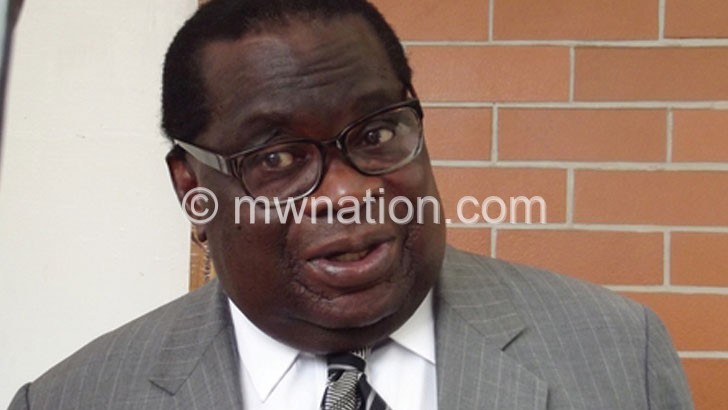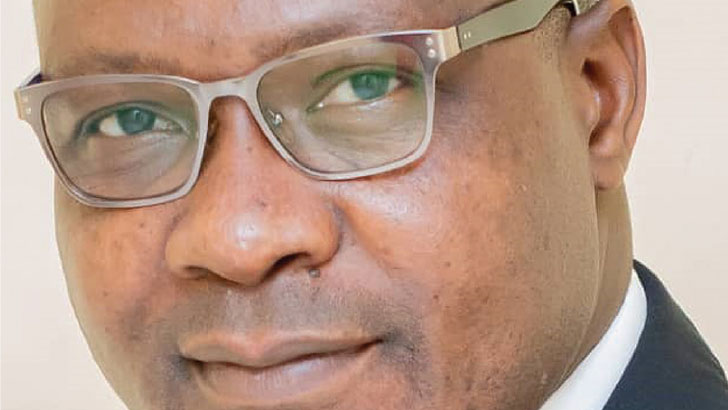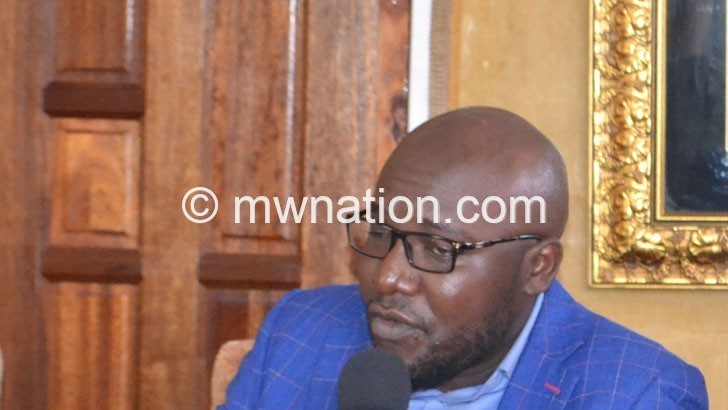Of politicising development
There has been too much politicisation of development projects in Malawi. Every politician seems to be concerned about winning votes than developing the nation.
However, despite that Malawians, with too many registered political parties, have a wider pool of politicians to choose from on the polling day; development still seems to elude us.
One can argue that the multitude of political parties is a sign that our democracy has matured, and that democracy is like a relay race where we pass the baton from one person to the other, but the way it is practised here prompts me to suggest that a little bit of dictatorship is necessary for Malawi to develop.

The reason I am saying this is that in Malawi, our leaders are so power hungry to the point that almost everyone believes only in themselves. Everyone wants to be the leader. Everyone feels they have unique policies better than the rest. Every government comes into power with intentions to start their own thing, their own development projects and political colours. Continuity is a word that does not exist in their vocabulary, especially as it relates to development projects.
Our political history is full of examples. For instance, while Malawi Congress Party (MCP) under the leadership of the late Hastings Kamuzu Banda, built the University of Malawi, there have been no significant renovations or maintenance of the existing structures. The universities libraries, classrooms, furniture and even books are in dire need of attention, but no one seems to care. Worse still, these institutions are faced with challenges of poor management and funding. One only needs to visit these colleges to see the poor shape they are in.
Yet, while the situation is like that, the Democratic Progressive Party (DPP) government under the late Bingu wa Mutharika thought the solution was in building five new universities. As a result, the standards of tertiary education are suffering in the country.
Another example of how lack of continuity is costing Malawians is the Nsanje Inland Port. The idea was hatched by the late Mutharika to ease importation and transport costs as well as boost international trade. However, when Peoples Party (PP) government took over, the leadership pushed the project aside and came up with its own Mudzi Transformation Trust whose aim was to construct low cost houses for the poorest in rural areas. A lot of money was invested in it and while it benefitted some people, the project’s impact can hardly be felt.
The trend does not stop there. DPP under the current leadership of Mutharika who succeeded Banda, felt the Mudzi Transformation Trust is not a project worth continuing. Or perhaps it was just the terminology they were against, because the administration came up with a similar programme, the Iron Sheet and Cement Subsidy, popularly known as the Malata Subsidy. It remains to be seen what good the project would have done to the country’s economy at the end of the DPP’s current five-year term.
However, as visionary as our leaders can be, it seems their vision is limited only to their terms of office. They do not plan on where they want this country to be beyond their maximum two-five years term of office as presidents. They have laid down no long-term strategic plan for the country, no strategic development policies to get Malawi out of its poverty. In other words, we lack a national dream.
This is unfortunate. Malawi needs to get out of our party boxes and colours that are costing us development and start thinking as a nation. What our leaders have done since the country attained independence is a form of continuation of slavery. The politicians’ selfish motives have kept this country stuck in the dark ages when our neighbouring countries, and indeed the whole world, is moving forward.
Perhaps it is time we had leaders as in chief executive officers on contract basis, complete with expectations and performance appraisals, as opposed to presidents. What would 40 political parties be aiming to harvest from a small country as Malawi, when democracy greats such as the USA, have only two main political parties?
We have embraced a disease in which we have put so much faith to solve our problems. Democracy is just another style of management, and our politicians must embrace good management styles of our resources. They must be strategic.
Democracy is not about yes and no, it must be rational as well. Somehow our leaders believe in themselves so much they do not see the need to consult the people that put them in power. There is so much wisdom, intelligence and expertise that they can tap from within the country, and move Malawi to enviable heights.
Time has come that not only should votes be important to the politicians, but also the change that ought to go back to the people who seek it through their voting. Our actions must impact on the people and not only a few individuals. Our degree of communism must rise above our pride in egocentrism. We must stop attributing achievements to political party names and current administrations, rather we must credit them to the efforts of our governments that are elected by the people. After all, the development projects are implemented using taxpayers money or development aid which is attached to a nation not a political party.
We are a country first and foremost before our political affiliations. Our presidents are not just leaders of their political parties, but of the entire nation. Therefore, we must stop the tendency of saying MCP or DPP or PP initiated this or that development. We need to change our view of politics if we are to make any progress.
However, if we keep on giving credit to political parties, we will always be taking one step forward then two backwards. If we think of our leadership as government and not political leadership, it will bring more unity among us, and in a few years time we will look back and say, we built this country! n
*The author is studying Social Science at Chancellor College. He likes to comment on political and economic issues.





